The Keta-Akatsi Diocese holds this year’s Chrism Mass at St. Joseph the Worker Catholic Church, Aflao-Border. This celebration was attended by Priests, Religious and parishioners from all parts of the Diocese.
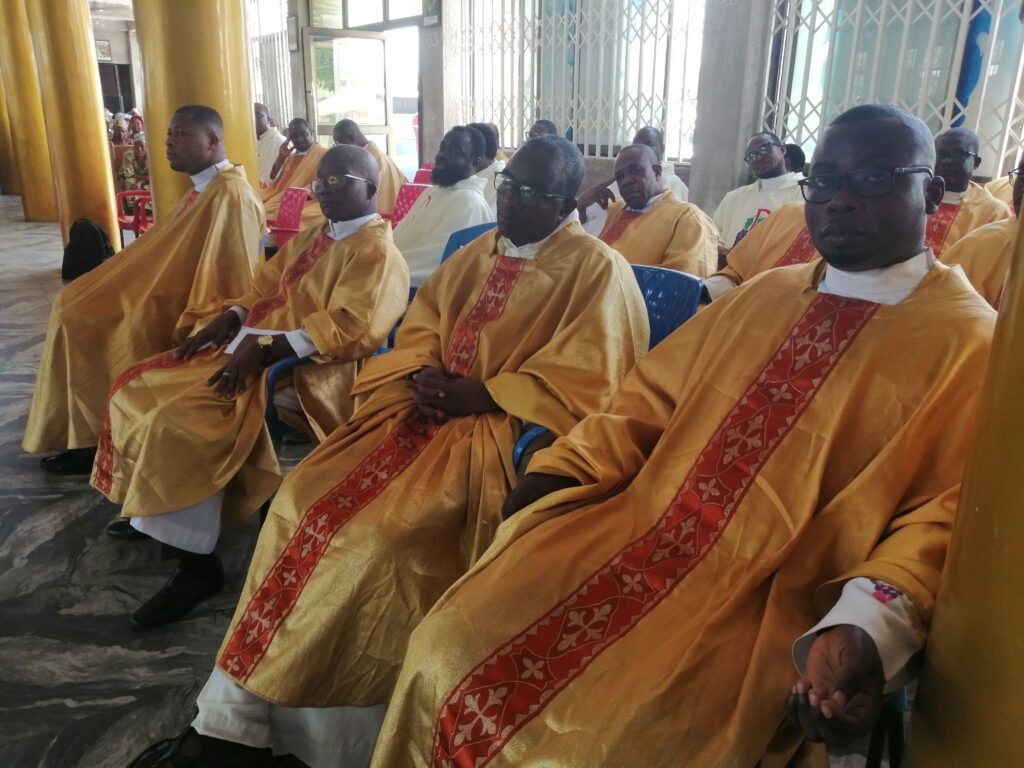
In his welcome address, the Pastor, Rev. Fr. Anthony Ocloo is grateful for the occasion and encouraged all to get involved in the celebration with the hope of a new experience of the Lord as they return. The Holy Week is an assurance that God is able to do many more things in our lives.
He also sees the occasion as an opportunity for the Parish, that God opens new doors in the life of the Parish community.
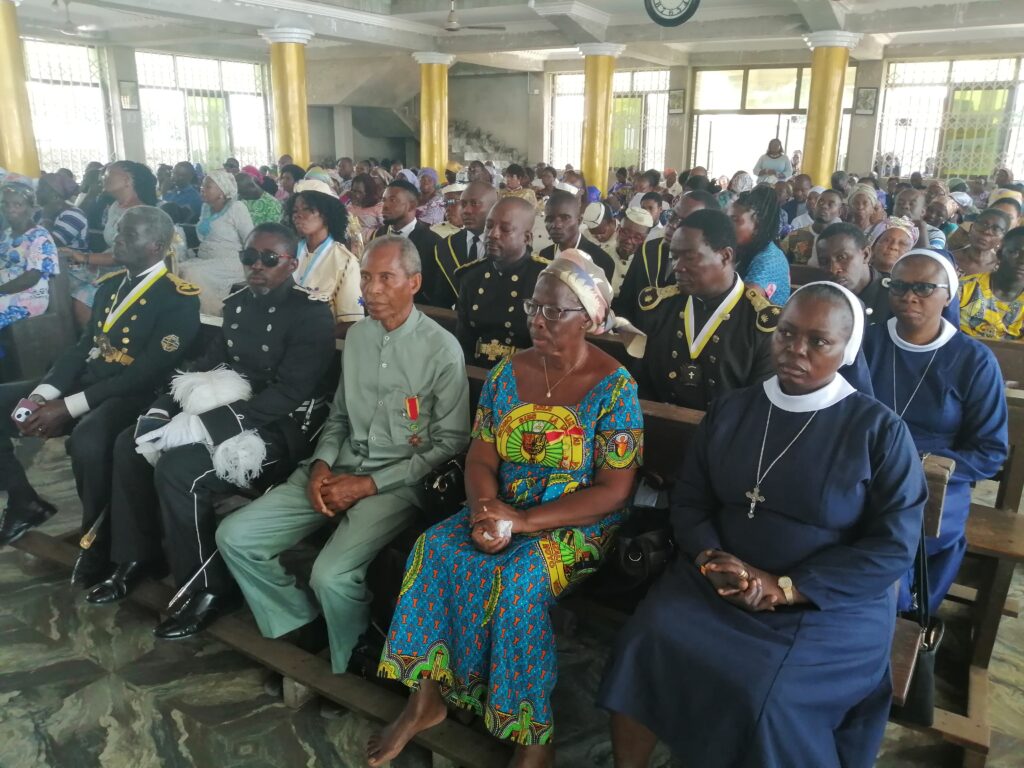
The Chrism Mass is traditional. It is the Mass in which the various oils of the Church are blessed: the oil of the sick; oil of the Catechumen are all blessed; and the Holy Chrism is consecrated.
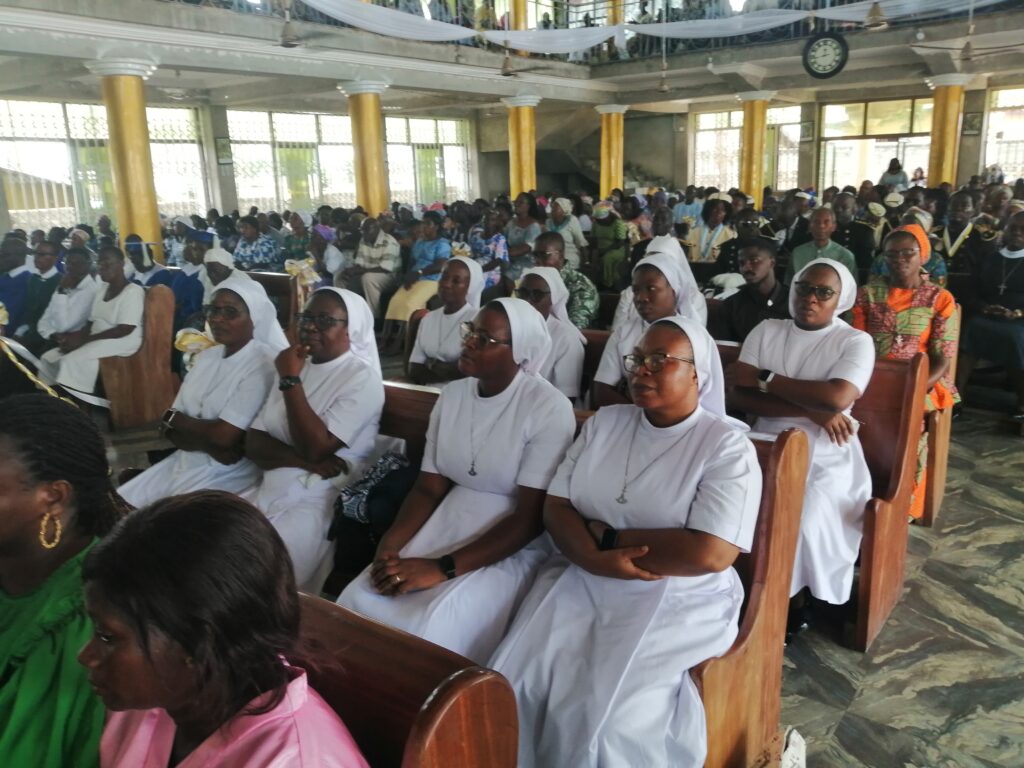
Most Rev. Gabriel Edoe Kumordji, SVD, touching on the readings of the day, points out the significance of the celebration, noting that these oils affect our Catholic life.
Today’s Chrism Mass at Aflao-Border is the first of its kind.
Chrism Mass is an ancient ritual, where the Church comes together to bless the oils that gives birth to the Church.
It is also a moment of dedication of people to God, through the use of the Holy Chrism.
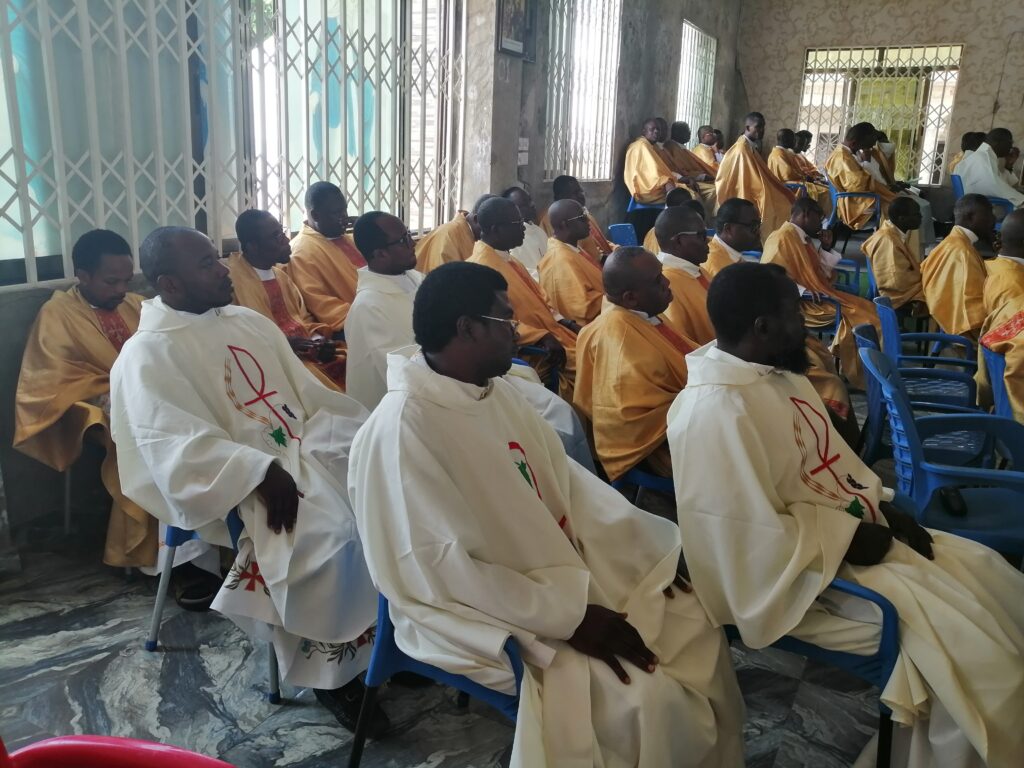
The readings from Isaiah announce the Messianic erra, admiring that the Lord’s erra is in our midst. It is a time to change from darkness to light. The Prophet was anointed to preach the good news to the poor, and to liberate the captives. These words were re-echoed by Jesus in the Gospel perichope.
Celebrating the Jubilee Year as a Church, walking through the various designated doors, making pilgrimages, going for confessions, are all significant to transform our Christian lives. We move from darkness to life, sadness to joy, because the Lord is in our midst.

The oils, from ancient times, are used for spiritual purposes, for healing, for consecration-anointing of Priests and Bishops-it consecrates them for their services, having been set apart.
The oils are also used for religious purposes.
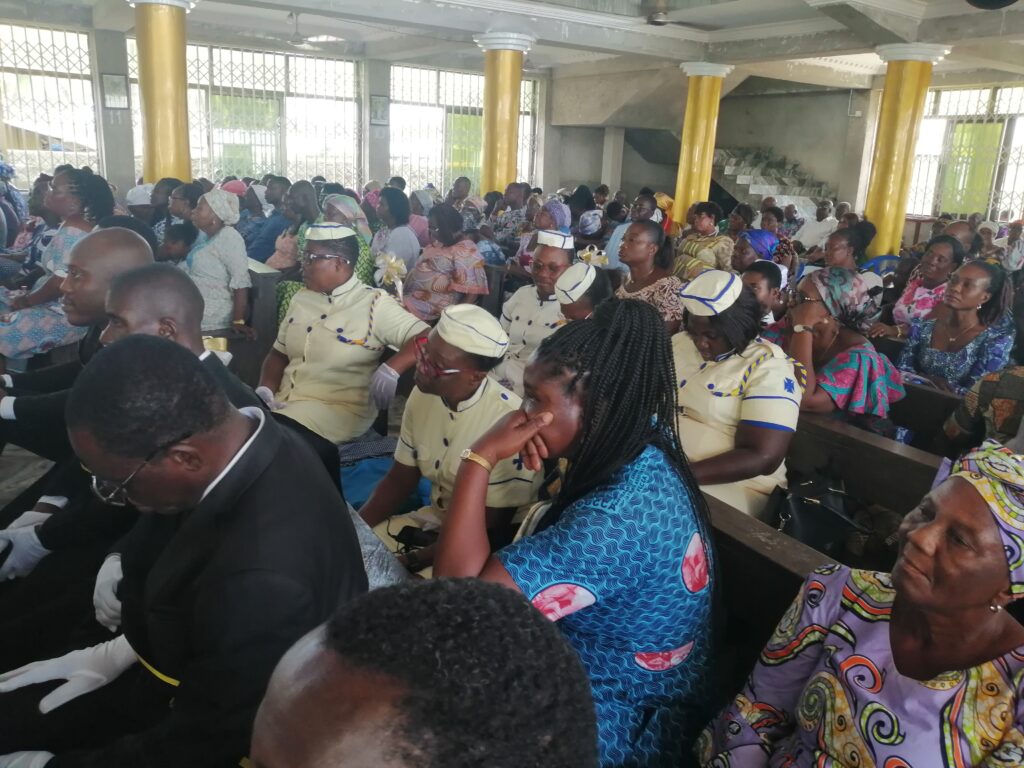
The ceremony of blessing of the oils is very significant. The Church invokes her powers in these oils.
The Bishop cannot sit at home and bless the oils privately. He does so in communion with the Priests who are obliged to attend the ceremony. It is in that ceremony that the Priests also renew their vows.
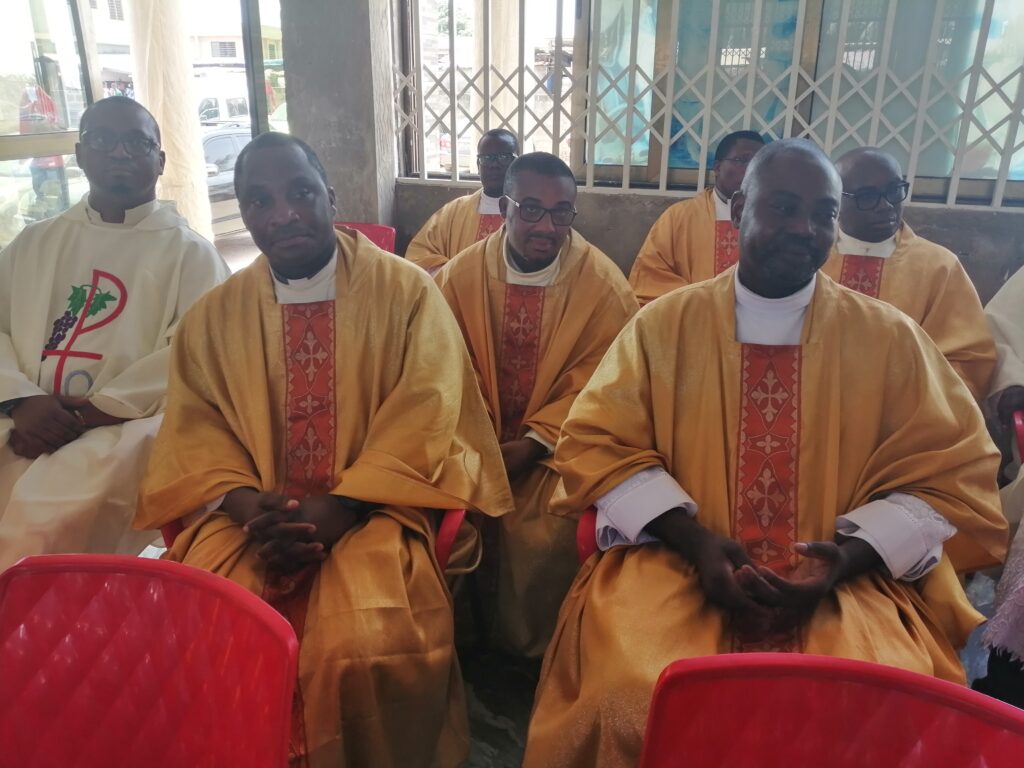
The Bishop has corrected the mentality that, the oil of the Sick is not an oil of the dying. Clarifying that, it is not as if when you are anointed, you would die.
He therefor encouraged all to make proper use of the oil with purified intentions. ‘Even when you are sick and going for surgery, you can call the priest to anoint you’ he added. The misconception of the extreme unction should be corrected.
The Bishop has also discouraged the buying and blessing of all kinds of oils around our markets. He added that is not a good Catholic practice.
The Holy oils must be kept in revered and descent places. The oils are special, let them be kept at places that befit their significance.
The oils we bless give us special grace to live out our faith. When you receive the blessed oils, do so with faith.
Again, the Bishop has pointed it out that, in cases of death, where there is no blessed oil, the Church permits that the Priest can bless a small quantity of any oil and use only for that occasion, and discard the rest reverently.
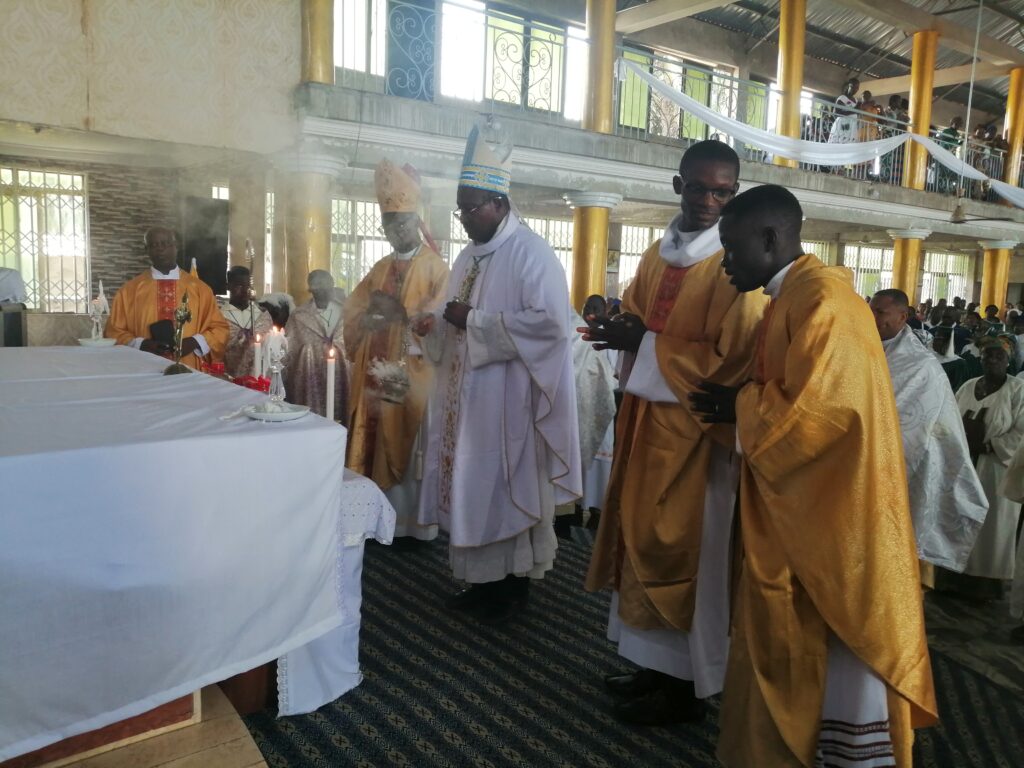
In the celebration of the Eucharist, while the oil of the sick is blessed before the doxology, the oil of the Catechumen is blessed after the Post Communion Prayer (the Complendium). The Chrism is later consecrated (not blessed) immediately after that, in communion with the Priests who join by extending one hand without saying the words.
May tthe use of these oils through the year, grant healing to the Sick, strengthen the faith of Catechumens, and keep the children of the Church holy.


Thanks so much for making it possible for sharing this great opportunity to read and understood the significance of Chrism mass. God bless us all.